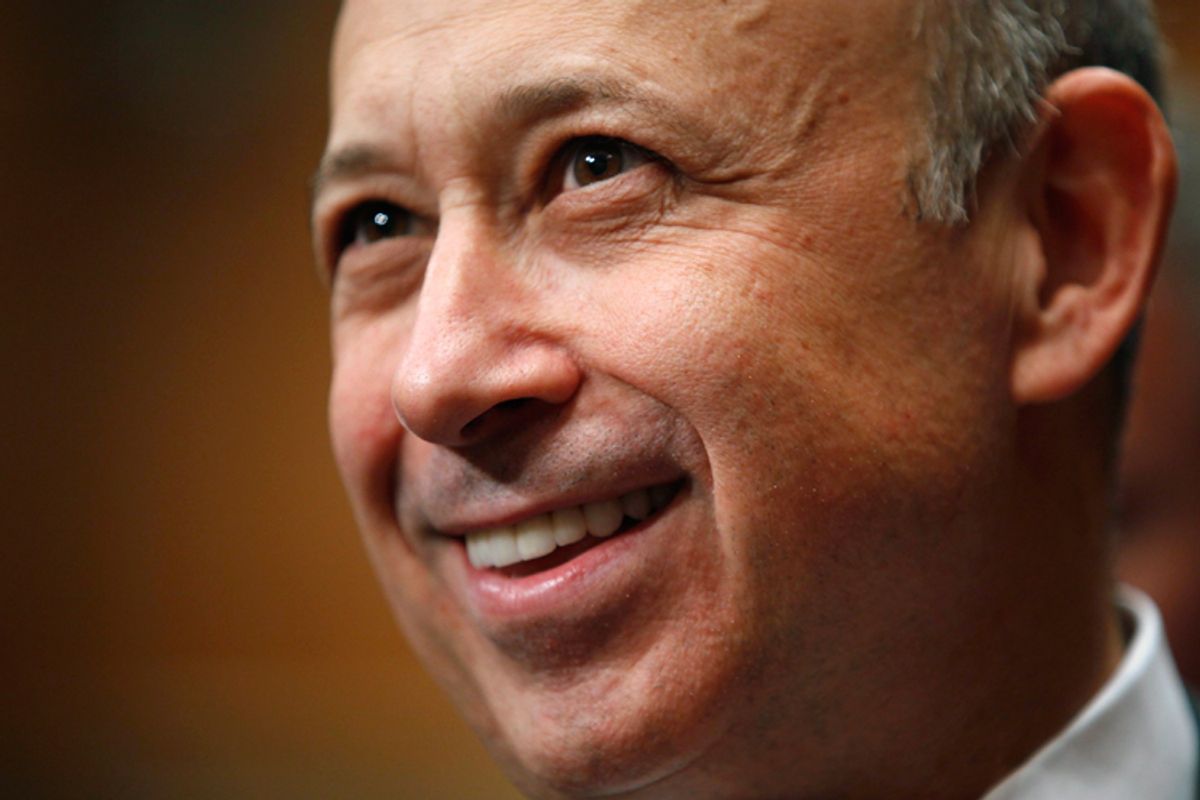Now that congressional Democrats have swapped out the bank tax that was supposed to pay for bank reform with a hike in FDIC premiums and the early closure of the TARP program, it's time to tote up the winners and losers in this latest humiliation for the majority party.
Winners:
- Goldman Sachs and Morgan Stanley. Banks with assets over $10 million will now have to fork over higher premiums to the Federal Deposit Insurance Corp. But, as Felix Salmon points out, premier investment banks don't have insured deposits that are backstopped by the FDIC, so they won't have to pay.
- Sen. Scott Brown, R-Mass. Brown balked, and the Senate danced to his tune. How fast will his campaign finance coffers swell?
- The big banks. Although JP Morgan Chase, Bank of America, Citigroup et al. disproportionately benefited from hundreds of billions of dollars of taxpayer assistance and would probably have gone bankrupt without the government's help, they don't have to pay the tax. The White House is spinning the line that it doesn't mind axing the bank tax, because it plans to introduce a stand-alone $90 billion bank tax to pay for TARP expenses. Good luck getting Scott Brown to sign off on that one.
Losers:
- President Obama, Senate Majority Leader Harry Reid, Senate Banking and Finance Committee Chairman Chris Dodd, and House Finance Committee Chairman Barney Frank. It's fair to make the argument that the every-step-requires-a-60-vote-supermajority Senate math just doesn't work for Democrats. But couldn't they have figured this out in advance? Passing a bank tax at 3 in the morning and then hurriedly having to reconvene the conference committee to shuffle the books makes the Dems look like bumblers.
- The American people. The remaining TARP money was being held in abeyance for emergencies, so let's hope nothing bad happens in the near future, like continuing weakness in the employment picture or unexpected economic disaster. For once, HTWW has to agree with Sen. Richard Shelby, R-Ala. Using unspent TARP money to pay for bank reform is "budgetary smoke and mirrors." If the goal is to remain deficit-neutral, how does it work to apply TARP money -- funds that are themselves unaccounted for by spending cuts or tax hikes -- to the problem?
- The deficit. The Economist's Ryan Avent is cogent on this point. The clearest lesson from this absurd exercise is that even the most moderate Republicans won't support any legislation that includes the words "new taxes." But there is simply no feasible way to balance the government's books through spending cuts alone. Taxes will have to be part of the long-term picture. The GOP has made its position clear: Huge deficits are here to stay.



Shares